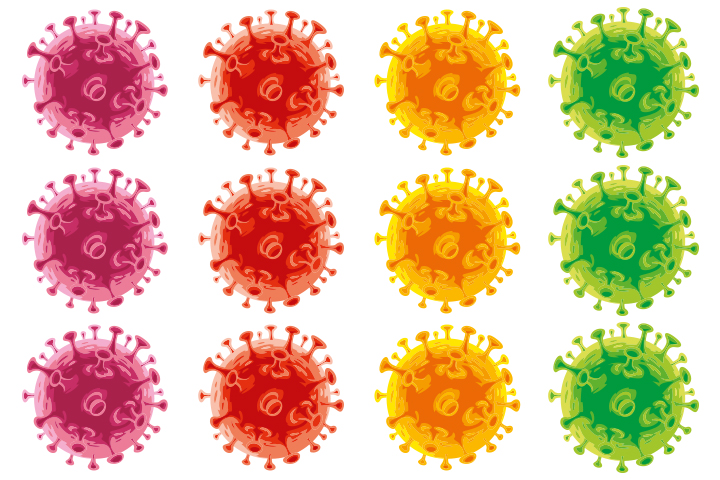RIO DE JANEIRO, BRAZIL – Brazil, one of the countries hardest hit by the covid-19 pandemic in the world, registered in the last 24 hours 1,036 new deaths due to coronavirus and 40,941 infections, bringing the number of victims to over 435,000 and the number of cases to 15.6 million, the government reported on Sunday.
According to the bulletin released today by the Ministry of Health, the Latin American giant, with 212 million inhabitants, has accumulated 435,751 deaths and 15,627,475 cases of covid since the beginning of the pandemic, a little more than fifteen months ago.
The figures confirm Brazil as the second country globally in number of victims, behind the United States, and the third in number of cases, only surpassed by the USA and India.
The number of deaths fell from 2,087 on Saturday to 1,036 on Sunday. The number of infections from 67,009 to 40,941 in the same period, but the Health Ministry itself acknowledges that the numbers are generally lower on Sundays and Mondays because of fewer officials processing data on weekends.
The statistics usually jump on Tuesdays when the weekend figures are updated.
In any case, the number of coronavirus deaths in Brazil has been falling slowly and gradually after the peak of the second wave of the pandemic, which the country recorded in March and April of this year when it reached records of more than 4,000 deaths per day and 100,000 cases per day.
The average number of deaths in a week stood this Sunday at 1,916 per day, a drop of 8.8% compared to seven days ago (2,100 deaths per day on May 9) and 20.4% compared to the average of fourteen days ago (2,406 deaths per day on May 2).
The average number of infections is far from its peak (76,545 cases per day on 23 March) but has risen again in recent days after falling to 56,533 on 26 April.
The 7-day average number of infections stood at 63,241 per day on Sunday, an increase of 2.98% compared to the average of seven days ago (61,411 infections on 9 May) and 6.9% compared to fourteen days ago (59,160 infections on 2 May).
90.2 % OF THOSE INFECTED IN BRAZIL RECOVERED
According to the Ministry of Health, of the 15.6 million infected, some 14.1 million, 90.2% of the total, have already recovered and have been discharged. At the same time, 1.09 million are still under medical care, equivalent to 7.0%.
Data released this Sunday indicate that covid has a mortality rate in Brazil of 207.4 deaths per 100,000 inhabitants, an incidence of 7,436.4 infections per 100,000 inhabitants, and a case fatality rate of 2.8% of those infected.
Specialists assure that Brazil’s mortality and covid infection figures will remain at the current high levels until the Ministry of Health manages to advance more rapidly in the vaccination process.
With 84 million vaccines already distributed throughout the country by AstraZeneca, Sinovac, and Pfizer laboratories, Brazil has administered the first dose of the immunizers to about 19% of its population and the two doses 10%.
In an unprecedented study to analyze the effectiveness of mass vaccination, the Ministry of Health vaccinated this Sunday a large part of the adults in Botucatu, a city of 150,000 inhabitants in Sao Paulo’s interior.
The project, supported by the Bill and Melinda Gates Foundation and endorsed by the World Health Organization (WHO), had set a target of vaccinating some 80,000 people between 18 and 60, corresponding to just over 80% of Botucatu’s 106,000 adults.
As those over 60 years of age had already been vaccinated during the national immunization campaign launched last January 18, the expectation is that at least 90 % of all adults in the city will be immunized by the end of this Sunday.
In this phase four study, in addition to verifying the capacity of the AstraZeneca vaccine to reduce cases, hospitalizations, and deaths due to covid-19, the aim is to analyze the efficacy of mass vaccination and that of the immunizer against the new variants of the coronavirus circulating in Brazil.
The experiment will last eight months and includes the application of two doses of the vaccine – with an interval of three months – and the monitoring of the health status of all those who were immunized, as well as that of the inhabitants of neighboring cities, which will be used as a basis for comparison.


